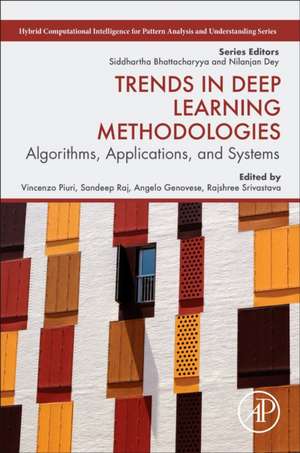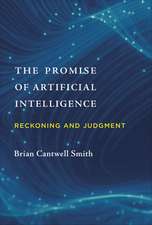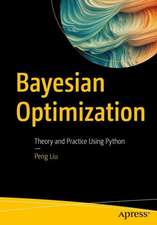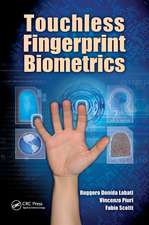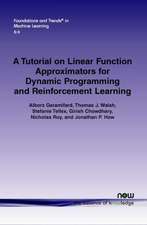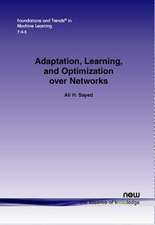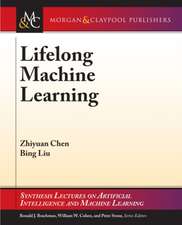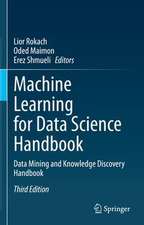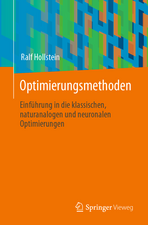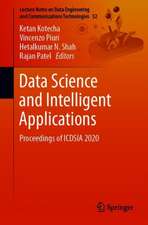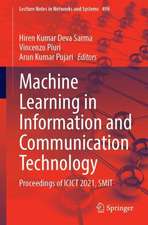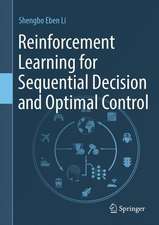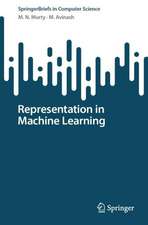Trends in Deep Learning Methodologies: Algorithms, Applications, and Systems: Hybrid Computational Intelligence for Pattern Analysis and Understanding
Editat de Vincenzo Piuri, Sandeep Raj, Angelo Genovese, Rajshree Srivastavaen Limba Engleză Paperback – 16 noi 2020
In recent years, many powerful algorithms have been developed for matching patterns in data and making predictions about future events. The major advantage of deep learning is to process big data analytics for better analysis and self-adaptive algorithms to handle more data. Deep learning methods can deal with multiple levels of representation in which the system learns to abstract higher level representations of raw data. Earlier, it was a common requirement to have a domain expert to develop a specific model for each specific application, however, recent advancements in representation learning algorithms allow researchers across various subject domains to automatically learn the patterns and representation of the given data for the development of specific models.
- Provides insights into the theory, algorithms, implementation and the application of deep learning techniques
- Covers a wide range of applications of deep learning across smart healthcare and smart engineering
- Investigates the development of new models and how they can be exploited to find appropriate solutions
Preț: 639.84 lei
Preț vechi: 970.82 lei
-34% Nou
Puncte Express: 960
Preț estimativ în valută:
122.45€ • 127.20$ • 101.71£
122.45€ • 127.20$ • 101.71£
Carte tipărită la comandă
Livrare economică 27 ianuarie-10 februarie 25
Preluare comenzi: 021 569.72.76
Specificații
ISBN-13: 9780128222263
ISBN-10: 0128222263
Pagini: 306
Dimensiuni: 152 x 229 x 20 mm
Greutate: 0.41 kg
Editura: ELSEVIER SCIENCE
Seria Hybrid Computational Intelligence for Pattern Analysis and Understanding
ISBN-10: 0128222263
Pagini: 306
Dimensiuni: 152 x 229 x 20 mm
Greutate: 0.41 kg
Editura: ELSEVIER SCIENCE
Seria Hybrid Computational Intelligence for Pattern Analysis and Understanding
Cuprins
1. An Introduction/ theoretical understanding to deep learning – challenges, feasibility in domains 2. Deep learning for big data 3. Deep learning in signal processing 4. Deep learning in image processing 5. Deep learning in video processing 6. Deep learning in audio/speech processing 7. Deep learning in data mining 8. Deep learning in healthcare 9. Deep learning in biomedical research 10. Deep learning in agriculture 11. Deep learning in environmental sciences 12. Deep learning in economics/e-commerce 13. Deep learning in forensics (biometrics recognition) 14. Deep learning in cybersecurity 15. Deep learning for smart cities, smart hospitals, and smart homes
